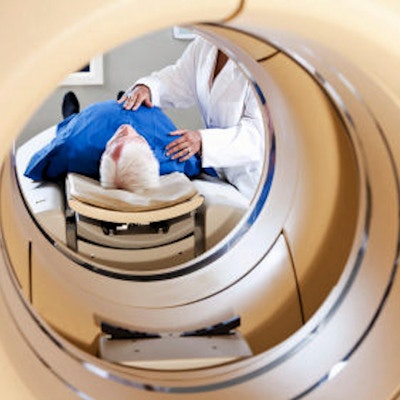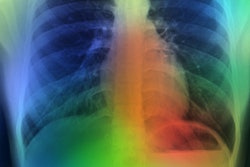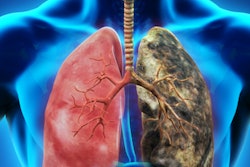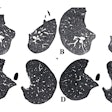
Thoracic CT in patients who are slated to undergo abdominal or pelvic surgery can help clinicians better predict which may require mechanical ventilation after the procedure, according to a study published September 2 in the American Journal of Roentgenology.
The study findings could help surgeons better plan for potential postsurgery risks, wrote a team led by Dr. Arzu Canan of the University of Texas Southwestern Medical Center in Dallas.
"Many patients undergo thoracic CT before abdominal or pelvic surgery; the CT findings may complement preoperative clinical risk factors," Canan and colleagues noted.
The study included 165 patients who underwent thoracic CT before abdominal or pelvic surgery that required general endotracheal tube anesthesia. Of these, 42 required postoperative mechanical ventilation and 123 did not.
Canan and colleagues found that on preoperative CT, predictors of postoperative mechanical ventilation included the following:
- Bronchial wall thickening (odds ratio, 4.8)
- Pericardial effusion (odds ratio, 5.3)
- Shorter lung height (odds ratio, 0.8 per cm increase)
- Greater anteroposterior chest diameter (odds ratio, 1.2 per cm increase)
"Bronchial wall thickening was the only qualitative parameter involving the lung parenchyma that differed between the case and control groups ... with significantly increased need for postoperative mechanical ventilation in patients with [it]," Canan and colleagues concluded.




















